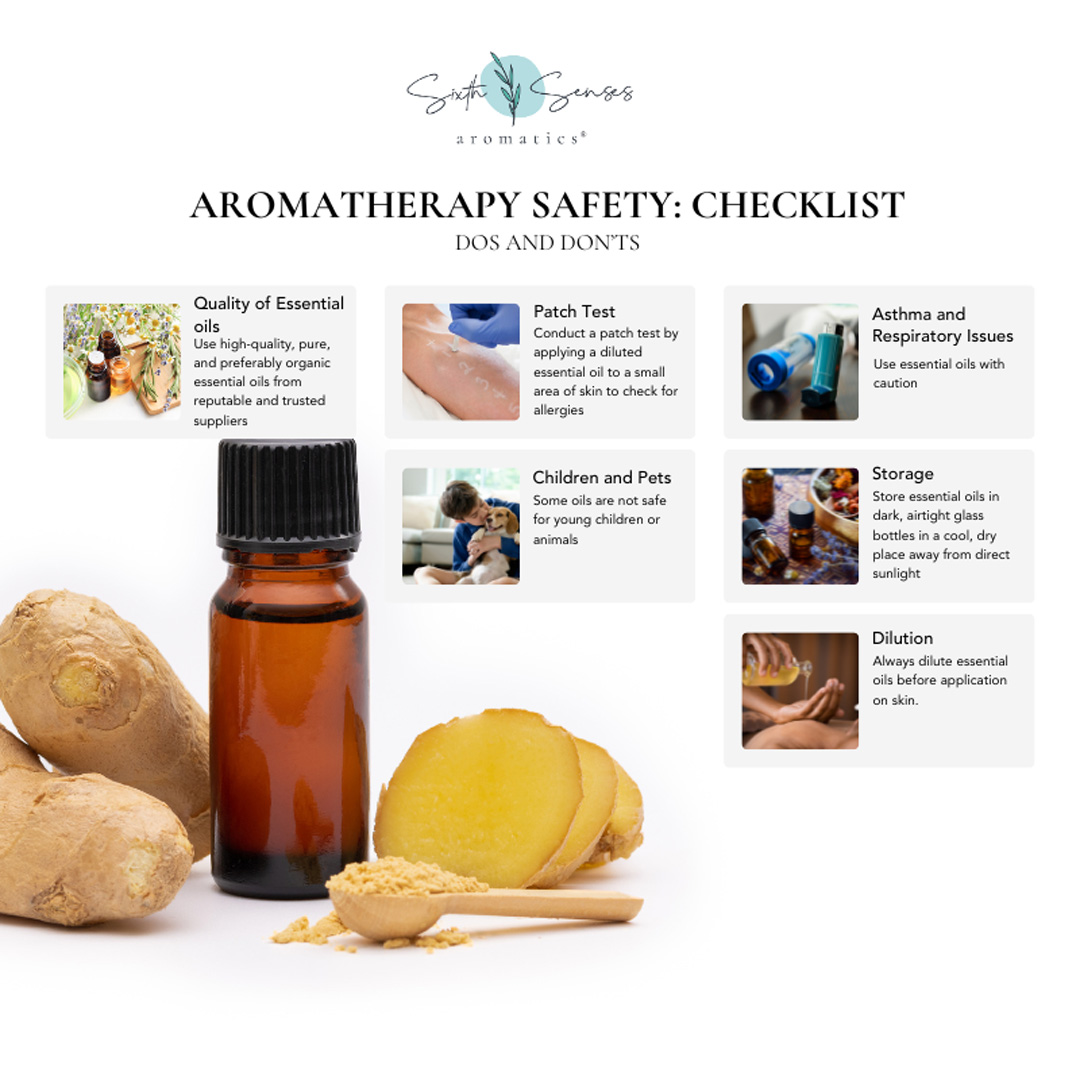Ensuring safety in aromatherapy is important to enjoy the benefits of essential oils without any adverse effects. Here are basic safety guidelines for aromatherapy:

Quality of Essential Oils:
- Use high-quality, pure, and preferably organic essential oils from reputable and trusted suppliers. Check for certifications and testing.
Dilution:
- Essential oils are highly concentrated and should be diluted before application on the skin to avoid irritation or allergic reactions. Use a carrier oil like coconut, almond, or jojoba oil for dilution.
Patch Test:
- Conduct a patch test by applying a diluted essential oil to a small area of skin to check for any allergic reactions before using it more widely.
Pregnancy and Medical Conditions:
- Consult a healthcare professional, especially during pregnancy or if you have any underlying health conditions, before using essential oils. Some oils can be harmful during pregnancy.
Children and Pets:
- Exercise caution when using essential oils around children and pets. Some oils are not safe for young children or animals.
Photosensitive Oils:
- Avoid exposure to direct sunlight or suntanning after using photosensitive essential oils like citrus oils, as they can cause skin irritation or pigmentation.
Ingestion:
- In most cases, ingestion is not recommended.
Asthma and Respiratory Issues:
- People with respiratory conditions like asthma should use essential oils cautiously and preferably consult a healthcare professional.
Storage:
- Store essential oils in dark, airtight glass bottles in a cool, dry place away from direct sunlight. Keep them out of reach of children.
Allergies:
- Be aware of any allergies you have to specific plants or essential oils to avoid potential allergic reactions.
Proper Usage:
- Follow recommended dosages and usage guidelines for each essential oil. More is not always better and can lead to adverse effects.
Consult a Professional:
- If you’re new to aromatherapy, seek guidance from a certified aromatherapist to ensure safe and effective use of essential oils.
Personal Sensitivities:
- Pay attention to your body’s reactions and adjust usage accordingly if you experience any sensitivities or discomfort.
Adhere to Guidelines:
- Follow any safety guidelines provided by the National Association for Holistic Aromatherapy (NAHA) or other reputable organizations.
By adhering to these safety guidelines, you can enjoy the benefits of aromatherapy safely and effectively. Always prioritize safety and informed usage when working with essential oils.

